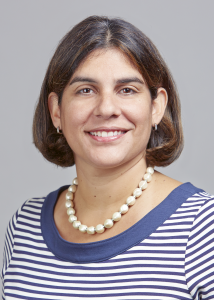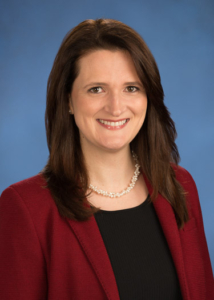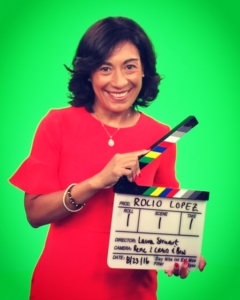 “Bragging or self-promotion ” has a bad rap, but according to PwC US’s Ilka Vázquez, it shouldn’t when done right. “I think it’s ok to brag a little about your impact and what you’re bringing to the table,” she says. “We assume someone is noticing our great work and will reward us, but the reality is that you can speed up the process if you talk about your success to people who are influential. Your elevator speech gets better the more you give it and can help you establish a personal brand.”
“Bragging or self-promotion ” has a bad rap, but according to PwC US’s Ilka Vázquez, it shouldn’t when done right. “I think it’s ok to brag a little about your impact and what you’re bringing to the table,” she says. “We assume someone is noticing our great work and will reward us, but the reality is that you can speed up the process if you talk about your success to people who are influential. Your elevator speech gets better the more you give it and can help you establish a personal brand.”
She finds that women in particular struggle with asking for what they want and articulating a perspective on where they want to go. “Men are negotiating all the time, and women need to get in the habit of speaking up when there is a particular opportunity that interests them,” she says. “How do you get to the next level? Ask for it.”
From Engineering to Consulting
Born and raised in Puerto Rico, Vázquez attended the University of Michigan and earned both a bachelor’s and a master’s degree, pursuing Industrial Engineering with a focus on manufacturing. After several manufacturing-related internships, she began exploring career options her senior year and was introduced to the world of consulting.
She joined Chicago-based Diamond Management & Technology Consultants, Inc., which was acquired by PwC US in 2010, and has been a career consultant ever since. Her first project was in financial services at an investment bank, which she notes was a critical point that established her future career, primarily spent in capital markets. “Coming from engineering, it was a completely different perspective; I had no finance background but here I am working with an investment bank.”
Given her lifelong career as a consultant she credits becoming a partner at PwC US in 2014 as a professional achievement she’s most proud of, based on what it represents. “It was the culmination of what I’ve accomplished and yet also the beginning of a new professional journey,” she says, adding that from her first interaction with partners at Diamond, she knew she wanted that role one day.
Her work now largely entails helping financial services clients manage regulatory expectations while promoting the sustainability of the programs put in place to comply with those regulations. She helps them make those processes become part of their DNA to facilitate their long-term effectiveness.
Given her engineering background, she also enjoys learning more about the ever-changing role of technology and the impact of innovations such as block chain and digital labor, which can revolutionize the industry. “I am constantly considering how these disruptive technologies will impact clients and what they need to do to take advantage of them.”
Being Agile Will Contribute to Success
Moving from an engineering background to consulting with financial services firms was a pivot, and yet, it underscores a skill that Vázquez encourages professionals to cultivate: the ability to be agile. She developed competencies core to any consultant that are applicable in a wide range of experiences. “Regulations or technology could drastically change what you’re working on today, and you need to adapt and be prepared to move your focus to something else,” she says.
One way to exercise this philosophy is to constantly be willing to step out of your comfort zone by asking for stretch assignments, even if you don’t readily fill all the requirements. It calls for having the confidence that you can learn and looking for ways to expand your experience.
She also believes that learning takes place throughout your career, and more seasoned professionals can glean wisdom from their junior counterparts.
Participating in Latina and Women’s Groups for Collaboration and Skills Development
An active member of PwC US’s Latino Inclusion Network, Vázquez is part of the leadership committee, advising the group on how to create a strong community where members can learn from one another. The firm recently celebrated its Global Diversity Week, which focused on the power of inclusion and overcoming unconscious biases. “We have to make sure we promote the idea of diversity based on ethnicity as well as gender, and how it contributes to a greater array of thoughts and ideas.”
She notes that the Latino community is very open to different perspectives, with a culture that inspires inclusiveness. “When we get together, it’s not just four people but 20,” she says. “This perspective of the ‘more the merrier’ means we are open to different viewpoints and that helps me motivate a diverse team.”
She also holds a role of partner sponsor for PwC’s New York Metro Women’s Advisory Network and the Working Moms Group, two groups focused on supporting women within Advisory.
Over the years she has participated in firm-sponsored programs that support the advancement of women, such as the Breakthrough Leadership and Diamond programs which not only offered exposure to senior leadership, but also provided the coaching and advocacy opportunities that helped her cultivate relationships with partners.
Married with two children – a seven-year-old daughter and a 21-month-old son — Vázquez enjoys spending time with them, often conversing in Spanish as she encourages them to be bilingual.
An avid Michigan sports fan, she participates in regular recruiting activities at the school, both for PwC and to help attract minority students to campus. As a graduate of the Harvard Business School, she is also connected to the HBS Latino Alumni Association.



